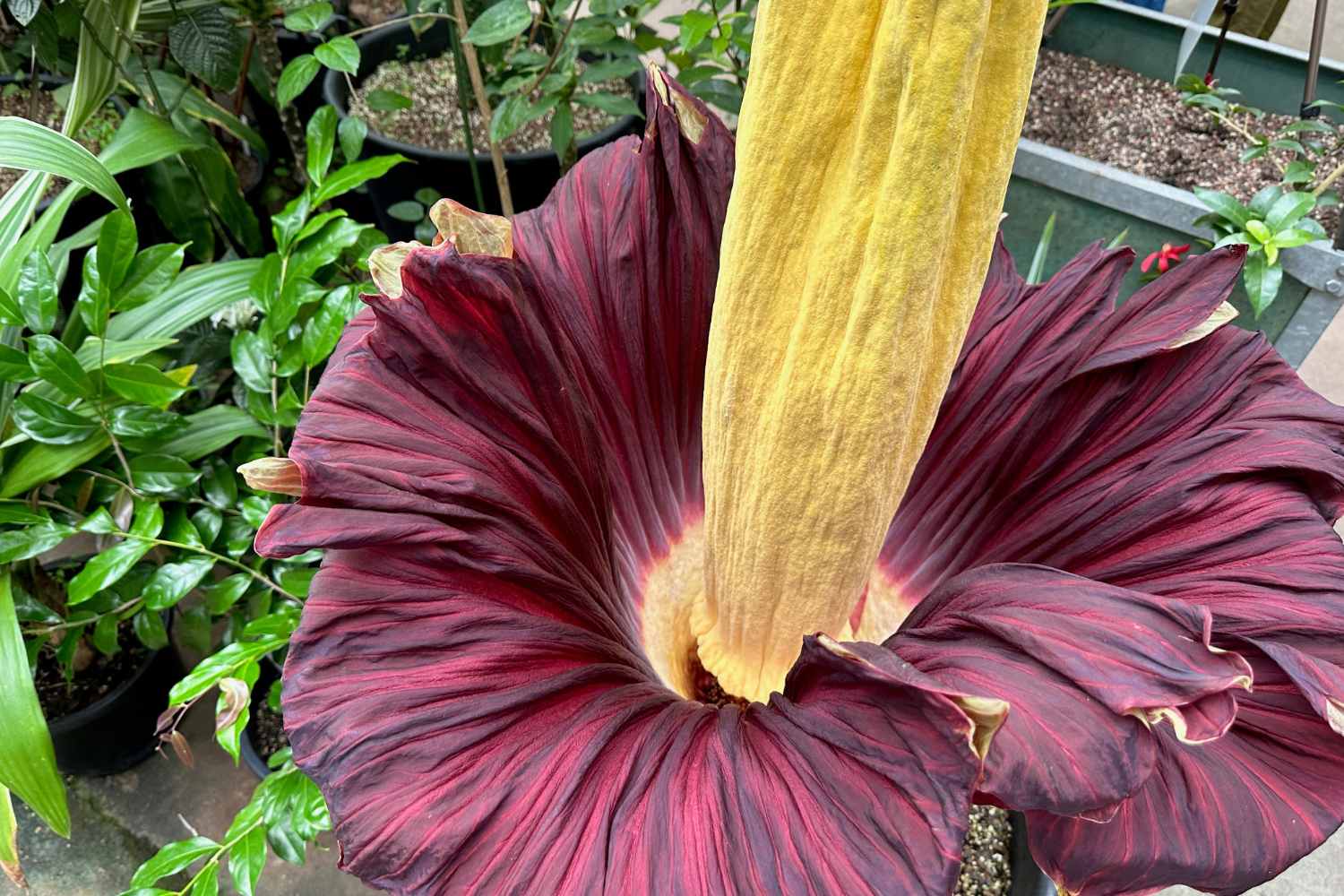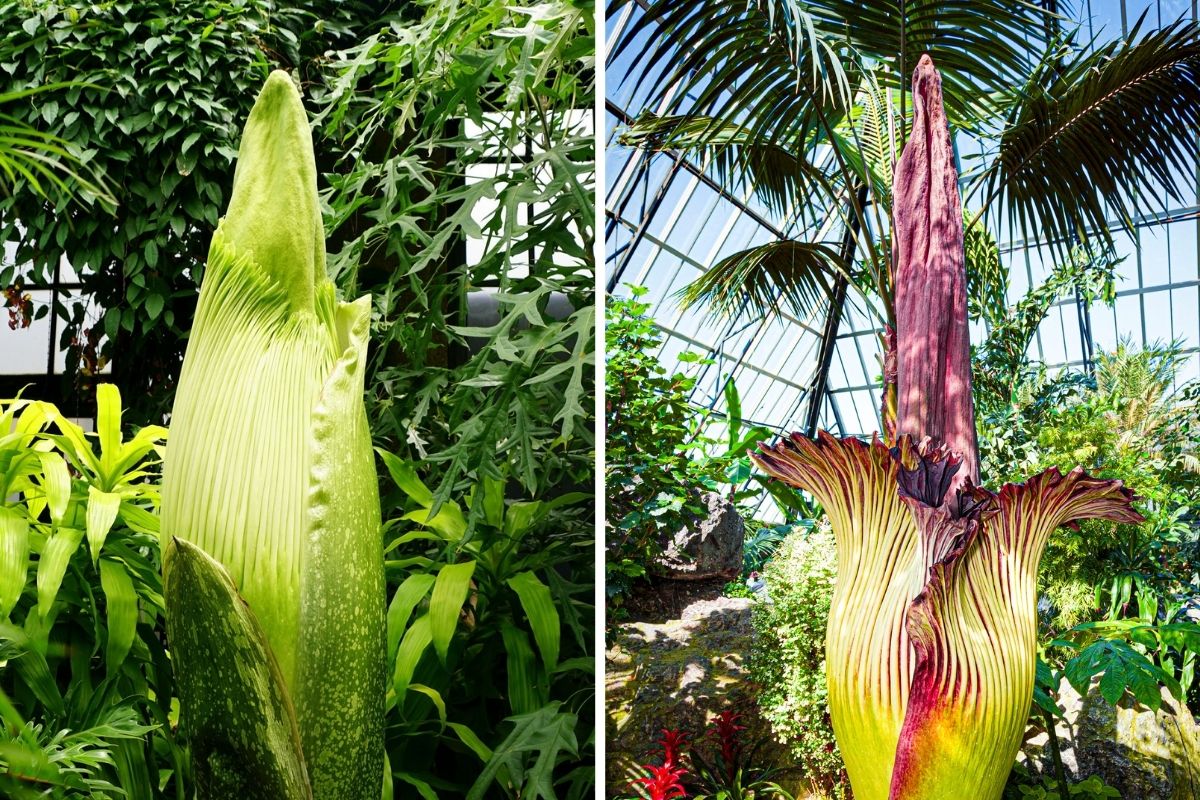In the city of Dortmund, Germany, there's a desperate search for David. And it's not a person: but one of the very few remaining specimens of the "corpse flower" in the world. The plant, with its nauseating odor, was stolen from the Rombergpark botanical garden

An unusually bizarre theft has shaken the city of Dortmund, Germany: from the famous Rombergpark botanical garden, a specimen of Amorphophallus titanum has disappeared, known as the “corpse flower” for its nauseating odor, similar to that of rotting flesh. The news was confirmed by the botanical garden administration, which reported the theft to authorities.
What happened to David?
According to initial reports, the thieves didn’t simply cut the flower but dug up the entire plant with its root, an operation that is anything but simple: the specimen, nicknamed “David,” weighs on average between 44 and 66 pounds (20 to 30 kilograms). This makes the theft even more suspicious, because whoever carried it out clearly knew what they were doing — and how much that plant was worth on the rare botanical collectors’ market.
Amorphophallus titanum is one of the largest and most fascinating plants on the planet, native to the rainforests of Sumatra, Indonesia. When it blooms — an extremely rare event that occurs only every 3-7 years — the plant produces an enormous inflorescence that can exceed 10 feet (3 meters) in height. But its fame doesn’t derive solely from its size: the flower emits a terrible odor, similar to rotting meat.

@Rocco Macri-khairil77/123rf
This stench, however, serves a precise function: it attracts necrophilous insects like flies and beetles, which mistake the plant for a dead animal and facilitate pollination. The bloom lasts barely a couple of days at most, which is why each such event draws thousands of visitors. At Rombergpark, David’s bloomings in 2018 and 2021 attracted crowds from all over Germany.
The investigation into a theft that threatens biodiversity
The disappearance of an Amorphophallus titanum specimen is not just an economic or symbolic loss. It’s an extremely rare species that’s difficult to cultivate, protected in many countries. Today there are approximately 1,000 specimens worldwide, and each individual represents an important piece of botanical research and biodiversity conservation. Experts fear the theft could damage the species’ fragile reproductive balance, as well as representing a hard blow to the garden’s environmental education programs.
German authorities have already launched an investigation, but at the moment there are no suspects or concrete leads. It’s hypothesized that the flower could end up on the black market for rare plants, where similar specimens can fetch astronomical prices. Meanwhile, Rombergpark has expressed “deep concern” and has strengthened security measures. “David wasn’t just a plant — it was part of our history and our mission to protect nature,” a garden spokesperson declared.
Source: Stadt Dortmund
